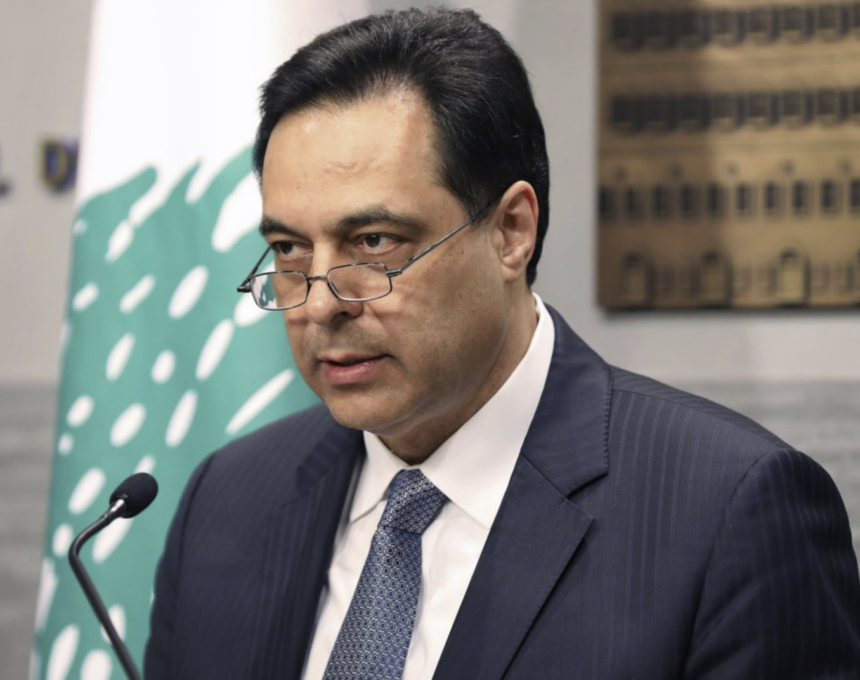Lebanese PM steps down in wake of Beirut explosion, protests

BEIRUT (AP) — Lebanon’s prime minister stepped down from his job on Monday in the wake of the disastrous Beirut port explosion that triggered public fury, saying he has come to the conclusion that corruption in Lebanon is “bigger than the state.”
In a brief televised speech after three of his ministers resigned, Prime Minister Hassan Diab said that he is taking “a step back” so he can stand with the people “and fight the battle for change alongside them.”
“I declare today the resignation of this government. May God protect Lebanon,” he said, repeating the last phrase three times.
The move risks opening the way to dragged-out negotiations over a new Cabinet amid urgent calls for reform. It follows a weekend of anti-government protests in the wake of the Aug. 4 explosion in Beirut’s port that decimated the facility and caused widespread destruction, killing at least 160 people and injured about 6,000 others.
The moment typified Lebanon’s political dilemma. Since October, there have been mass demonstrations demanding the departure of the entire sectarian-based leadership over entrenched corruption, incompetence and mismanagement.
But the ruling oligarchy has held onto power for so long — since the end of the civil war in 1990 — that it is difficult to find a credible political figure not tainted by connections to them.
Diab blamed corrupt politicians who preceded him for the “earthquake” that has hit Lebanon.
“They (political class) should have been ashamed of themselves because their corruption is what has led to this disaster that had been hidden for seven years,” he added.
“I have discovered that corruption is bigger than the state and that the state is paralyzed by this (ruling) clique and cannot confront if or get rid of it,” Diab, who was a university professor at the American University of Beirut before he took the job.
Although Diab’s resignation had appeared inevitable after the catastrophe, he seemed unwilling to leave and only two days ago made a televised speech in which he offered to stay on for two months to allow for various factions to agree on a roadmap for reforms. But the pressure from within his own Cabinet proved to be too much.
Iran, meanwhile, expressed concern that Western countries and their allies might exploit anger over the explosion to pursue their political interests. Iran supports the Hezbollah militant group, which along with its allies dominates the government and parliament.
Iranian Foreign Ministry spokesman Abbas Mousavi said “it is natural for people to be frustrated.” But he said it would be “unacceptable if some individuals, groups and foreign countries use the incident as a pretext for their purposes and intentions.”
Israeli Defense Minister Benny Gantz drew a line Monday between the blast and claims that Hezbollah stores its rockets and weapons deep inside civilian areas.
While he did not accuse Hezbollah and its arms of being linked to the blast, Gantz said villages and towns across Lebanon were packed with Hezbollah arms that, if set off — whether by Israeli operations or by accident — would destroy homes. He said Hezbollah was Lebanon’s biggest problem.